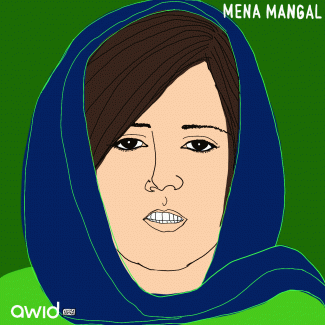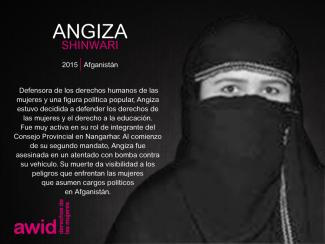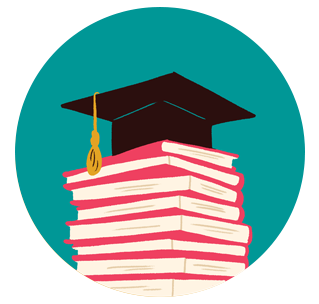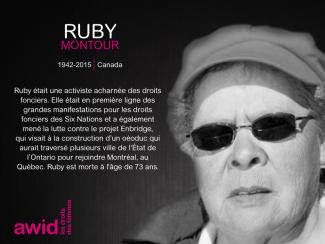
Barbara Bergmann

Over the past few years, a troubling new trend at the international human rights level is being observed, where discourses on ‘protecting the family’ are being employed to defend violations committed against family members, to bolster and justify impunity, and to restrict equal rights within and to family life.
The campaign to "Protect the Family" is driven by ultra-conservative efforts to impose "traditional" and patriarchal interpretations of the family, and to move rights out of the hands of family members and into the institution of ‘the family’.
Since 2014, a group of states have been operating as a bloc in human rights spaces under the name “Group of Friends of the Family”, and resolutions on “Protection of the Family” have been successfully passed every year since 2014.
This agenda has spread beyond the Human Rights Council. We have seen regressive language on “the family” being introduced at the Commission on the Status of Women, and attempts made to introduce it in negotiations on the Sustainable Development Goals.
AWID works with partners and allies to jointly resist “Protection of the Family” and other regressive agendas, and to uphold the universality of human rights.
In response to the increased influence of regressive actors in human rights spaces, AWID joined allies to form the Observatory on the Universality of Rights (OURs). OURs is a collaborative project that monitors, analyzes, and shares information on anti-rights initiatives like “Protection of the Family”.
Rights at Risk, the first OURs report, charts a map of the actors making up the global anti-rights lobby, identifies their key discourses and strategies, and the effect they are having on our human rights.
The report outlines “Protection of the Family” as an agenda that has fostered collaboration across a broad range of regressive actors at the UN. It describes it as: “a strategic framework that houses “multiple patriarchal and anti-rights positions, where the framework, in turn, aims to justify and institutionalize these positions.”

"Joining AWID, I hope I can help in the mobilization of the feminist movement. Not just for the privileged women, but for ALL women and feminist activists."
- Angelina Mootoo, Intersectional and Caribbean Feminist, Guyana/USA

Если по какой-либо причине вы хотите, чтобы ваш ответ был отозван и удален, вы имеете на это право. Пожалуйста, свяжитесь с нами через форму здесь, указав «Опрос «Где деньги?»» в качестве заголовка вашего сообщения, и мы удалим ваш ответ.
Mena Mangal was a prominent TV journalist, women’s rights advocate and cultural adviser to Wolesi Jirga, the lower house of Afghanistan's national parliament.
For more than a decade, she worked for Ariana TV, Tolo TV's Pashto-language channel Lamar, and the private Afghan national television broadcaster Shamshad TV. As a presenter, Mena focused on women’s rights and cultural talk shows.
"Women's rights activist Wazhma Frogh said Mangal "had a loud voice" and actively spoke out as an advocate for her people."
Off-screen, she also ran popular social media pages that advocated for the rights of Afghan girls and women to education and work. In terms of her private life, Mena wrote extensively about being forced into an arranged marriage in 2017 and the process she had to go through to finally obtain a divorce.
In a Facebook post, Mena wrote she was receiving death threats from unknown sources but would continue to carry out her work.
On 11 May 2019, she was attacked by unknown gunmen and shot dead in broad daylight in a public space in Southeast Kabul.
"We are concerned about the situation because it has a direct impact on women who work outside their homes...Female journalists are changing their professions due to the increasing risks they are facing." - Robina Hamdard, Kabul-based women’s rights activist.

Les ultraconservateurs ont développé un certain nombre d’arguments relatifs aux droits humains sur le plan international, lesquels instrumentalisent la religion, la culture, la tradition et la souveraineté nationale dans le but de porter atteinte aux droits liés au genre et à la sexualité. Les acteurs anti-droits s’éloignent de plus en plus d’un langage explicitement religieux.
Nous constatons de plus en plus fréquemment que des acteurs rétrogrades – qui dénigraient auparavant le concept des droits humains – tentent désormais de le récupérer et de le manipuler pour atteindre leurs objectifs.
Ce discours émergent qui prospère actuellement semble inoffensif, mais il fonctionne comme un cadre général abritant de multiples positions patriarcales et anti-droits.
Le thème de la « protection de la famille » est donc un exemple particulièrement parlant de l’évolution de la stratégie de certains acteurs rétrogrades que utilisent désormais un plaidoyer holistique et intégré.
L’argumentaire sur la « protection de la famille » est utilisé pour déplacer le sujet de droits humains de l’individu vers des institutions déjà puissantes.
Il prône également une conception unitaire, hiérarchique et patriarcale de la famille qui suppose une discrimination à l’égard des formes familiales situées en dehors de ces limites rigides. Il tente également d’atténuer l’importance actuellement accordée à la reconnaissance et à la protection des droits des membres vulnérables de la famille pour privilégier la non-discrimination, l’autonomie et l’absence de violence dans le contexte des rapports familiaux.
Le Saint-Siège et un certain nombre de groupes chrétiens de défense des droits cherchent à s’approprier la notion de droit à la vie pour servir leur lutte contre l’avortement. En introduisant la doctrine religieuse conservatrice dans le langage des droits humains, ils soutiennent l’idée qui veut que le droit à la vie, tel qu’énoncé dans la Déclaration universelle des droits de l’homme et dans le Pacte international relatif aux droits civils et politiques, s’applique dès le moment de la conception.
Aucun des instruments universels relatifs aux droits humains ne vient étayer ce discours. Pourtant, c’est une stratégie attrayante pour les acteurs anti-droits dans la mesure où le droit à la vie ne peut être violé en aucune circonstance et qu’il constitue une norme juridiquement contraignante.
Les acteurs anti-droits utilisent un certain nombre d’arguments dans leur campagne pour porter atteinte aux droits sexuels. Ils soutiennent que les droits sexuels n’existent pas ou qu’il s’agit de « droits nouveaux » nuisibles aux enfants et à la société et/ou que ces droits sont en opposition avec la culture, la tradition ou le droit national.
Dans le cadre onusien, les conservateurs plaident contre le droit à une éducation sexuelle complète (ESC) en attaquant ce concept à plusieurs niveaux. Ils prétendent que l’ESC viole les « droits parentaux », qu’elle nuit aux enfants et qu’il s’agit d’un endoctrinement idéologique plutôt que d’une forme d’éducation. Ils affirment également que cette éducation sexuelle complète est imposée aux enfants, aux parents et aux Nations Unies par de puissants lobbyistes qui cherchent à tirer profit des services qu’ils fournissent aux enfants et aux jeunes.
Les tentatives visant à invalider les droits relatifs à l’orientation sexuelle et à l’identité de genre prolifèrent. Les ultraconservateurs font valoir le fait que l’application des principes et du droit relatifs aux droits humains – qui existent pourtant depuis longtemps – consiste en fait à créer de « nouveaux droits ». Ils prétendent enfin que le contenu des droits devrait varier radicalement parce que ceux-ci devraient être interprétés à l’aune de la « culture » ou des « particularismes nationaux ».

Les organisations de la droite chrétienne se mobilisent depuis longtemps contre les droits reproductifs, aux côtés du Saint-Siège et d’autres alliés anti-droits. Elles affirment souvent que les droits reproductifs sont en fait une forme de contrôle de la population imposée par l’Occident aux pays du Sud global. Paradoxalement, ce discours émane le plus souvent d’acteurs issus des États-Unis et de l’Europe occidentale, dont beaucoup travaillent activement pour exporter leur rhétorique et leurs politiques fondamentalistes.
Ces acteurs rétrogrades reprennent également des arguments « scientifiques » élaborés par des groupes de réflexion ultraconservateurs et citent des sources usant de méthodologies de recherche peu fiables pour montrer que l’avortement a de nombreux effets secondaires psychologiques, sexuels, physiques et relationnels.
Les acteurs anti-droits visent à promouvoir le concept de « protection de la famille », mais ils tentent également de créer une nouvelle catégorie de « droits parentaux » à laquelle les normes existantes relatives aux droits humains ne donnent aucun fondement.
Paradoxalement, ce discours tente de dévoyer les systèmes de protection des droits dont les enfants jouissent par principe, tels qu’énoncés dans la Convention relative aux droits de l’enfant, pour renforcer les droits des parents à exercer un contrôle sur leurs enfants et à limiter leurs droits.
Les acteurs anti-droits tentent de plus en plus fréquemment de s’approprier et de subvertir les références et les arguments défendus par les défenseuses des droits humains, et notamment la notion de violence contre les femmes (VCF).
Dans le cadre de la Commission sur la condition de la femme ainsi que dans d’autres espaces, ces acteurs utilisent notamment la technique rhétorique suivante : ils abordent la violence contre les femmes comme un cadre dans lequel il est possible d’intégrer des arguments hostiles aux droits reproductifs et de nature patriarcale.
Les ultraconservateurs, par exemple, défendent l’idée qui veut que les relations intimes entre partenaires qui ne sont ni hétéronormatives ni traditionnelles constituent un facteur de risque de violence. Ils soulignent que les pères sont nécessaires à la protection des familles contre la violence.
Le Saint-Siège se livre à une critique incessante du genre, de l’« idéologie du genre », des « radicaux du genre » et de la théorie du genre. Les acteurs anti-droits interprètent souvent le terme « genre » comme un code caché pour parler des droits des personnes LGBT*Q. La droite religieuse utilise le concept de genre comme un outil transversal qui relie beaucoup de ses thèmes de prédilection. De plus en plus souvent, les opposant-e-s acharné-e-s à ces notions de genre se braque sur les questions relatives à l’identité de genre et aux droits des personnes trans*.
À l’heure actuelle, un certain nombre d’ultraconservateur utilisent la rhétorique de la complémentarité des sexes. Leur argumentaire est structuré autour de l’hypothèse de la différence entre les sexes : les hommes et les femmes sont censés jouer des rôles différents mais complémentaires dans le mariage et la vie familiale, mais aussi dans leur engagement dans la vie communautaire, politique et économique.
La référence aux rôles « naturels » vise à rejeter fondamentalement le caractère universel des droits humains en matière d’égalité et de non-discrimination.
Cet argument est également utilisé pour justifier les violations de ces droits par les États et les acteurs non étatiques. Il contribue en outre au non-respect de l’obligation faite aux États de lutter contre les préjugés et les pratiques fondés sur des rôles stéréotypés attribués aux hommes et aux femmes.
Ce discours suggère que les gouvernements nationaux sont injustement ciblés par les organes des Nations Unies ou par d’autres États agissant par l’intermédiaire de l’ONU. Il s’agit d’une tentative de déplacer le sujet des droits humains de l’individu ou de la communauté marginalisée qui subit une violation de ses droits vers une institution puissante et/ou rétrograde, à savoir l’État, dans le but de justifier des exceptions nationales aux droits universels, voire de soutenir l’impunité des États.
Les acteurs anti-droits ont récupéré la rhétorique de la liberté de culte pour justifier les violations des droits humains. Mais les ultraconservateurs se réfèrent à la liberté de culte d’une manière qui contredit frontalement l’objectif de ce droit humain et est en opposition fondamentale avec le principe de l’universalité des droits.
Le raisonnement avancé est que la liberté de culte est menacée et compromise par la protection des droits humains, en particulier de ceux liés au genre et à la sexualité.
Selon l’argument central des conservateurs, le droit à la liberté de culte est destiné à protéger une religion plutôt que la liberté des personnes d’avoir ou de ne pas avoir de croyances religieuses.
Pourtant, en vertu du droit international relatif aux droits humains, le droit protège les croyants plutôt que les croyances, et le droit à la liberté de religion, de pensée et de conscience comprend le droit de ne pratiquer aucune religion ou de ne pas adhérer à une croyance, mais aussi celui de changer de religion ou de conviction.
Les acteurs anti-droits utilisent communément des tactiques fondées sur les références à la culture et aux traditions pour saper les droits humains, dont le droit à l’égalité. Présentée comme monolithique, statique et immuable, la culture apparaît souvent comme une réalité en totale contradiction avec les « normes occidentales ».
Dans les débats politiques internationaux, les acteurs anti-droits font allusion à la culture pour saper l’universalité des droits : ils préconisent un relativisme culturel qui éclipse ou limite les revendications en matière de droits. Ces acteurs font également un usage rétrograde de la notion de droits culturels, qui repose sur une représentation volontairement faussée du concept de droit humain. Les États doivent veiller à ce que les pratiques traditionnelles ou culturelles ne soient pas détournées pour justifier certaines violations du droit à l’égalité.
Le droit relatif aux droits humains prévoit en effet l’égalité d’accès, de participation et de contribution à tous les aspects de la vie culturelle pour tous et toutes, y compris les femmes, les minorités raciales et religieuses ainsi que les personnes dont le genre et la sexualité sont non conformes.
Les acteurs anti-droits engagés dans les espaces politiques internationaux manipulent de plus en plus fréquemment les références à l’universalité des droits humains fondamentaux pour inverser le sens de l’universalité des droits.
Plutôt que d’utiliser le terme universel pour décrire l’ensemble des droits humains indivisibles et interdépendants, les ultraconservateurs délimitent et décrivent un sous-ensemble de droits humains « véritablement fondamentaux ».
Les autres droits considérés comme des « droits nouveaux » et facultatifs, seraient donc laissés à la discrétion des États. Cette rhétorique est particulièrement efficace dans la mesure où le contenu de la catégorie des droits véritablement universels reste implicite, ouvrant ainsi la porte à des variations dans l’interprétation.
Télécharger le chapitre complet (en anglais)
¿Tienes preguntas sobre el Foro de AWID o sobre las actividades relacionadas? ¡Tenemos respuestas!

Claro que sim! Encorajamo-lo a compartilhar a ligação do nosso inquérito com as suas redes. Quanto mais perspetivas diversas recolhermos, melhor será a nossa compreensão do cenário financeiro para a organização feminista.
«Quiero transmitir el siguiente mensaje a todos los tunecinos y tunecinas: Tenemos que unirnos para decir no a la censura y a los juicios contra el derecho a opinar.» - Lina Ben Mhenni (entrevista de 2013)
«Es cierto que la información y la Internet son importantes, pero para hacer una revolución es crucial estar en el territorio. Algunas personas aquí en Túnez piensan que el cambio se dará mediante un simple “me gusta” en Internet. Yo creo que hay que estar activxs en el terreno. Y, por supuesto, que hay que combinar las acciones en el terreno con la acción en las redes.» - Lina Ben Mhenni (entrevista en POCIT)
En 2010 co-organizó una protesta que desafió la decisión gubernamental de suprimir medios de comunicación e instalar la censura de Internet. Lina era muy conocida por su blog «A Tunisian Girl», y por su trabajo durante la revolución tunecina de 2011. En su blog, difundió la información sobre el levantamiento, compartió imágenes que documentaban las protestas, y fue una de las pocas voces que hablaron sobre los asesinatos y la represión de lxs manifestantes de Sidi Bouzid. Lina publicaba en su blog utilizando su nombre real en lugar de un seudónimo que protegiera su identidad, y fue una de lxs pocxs bloguerxs en hacerlo.
«Nuestra libertad de expresión corre verdadero peligro. Me temo que estamos perdiendo los extraordinarios frutos de la revolución: la desaparición del miedo y nuestra libertad de expresión. Tenemos que seguir luchando para proteger y preservar este derecho.» - Lina Ben Mhenni (entrevista de 2013)
Lina tenía solamente 36 años cuando falleció, el 27 de enero de 2020, debido a complicaciones derivadas de una enfermedad autoinmune.
«Libertad, mejor educación y mejor salud—eso era lo que todxs queríamos. Cuando fracasábamos, ella nos empujaba.» - Hala, maestra de Lina

News compilation regarding AWID's work and organization.
Press kits and statements
| Impunity for violence against women defenders of territory, common goods, and nature in Latin America March 16, 2018 |
Rural women's resistance to closing civic space March 15, 2018 |
|
| Empowering rural women in mining affected environments March 13, 2018 |
Feminist Perspectives on Accountability March 13, 2018 |
Gender Perspectives on Corporate Accountability March 12, 2018 |
Les Réalités féministes consistent en une invitation chaleureuse et bienveillante, une sorte d’acte de préservation et de soins massifs (versus un soin individuel), une invitation à archiver et à faire l’inventaire de tout le travail réalisé, sous peine de le voir disparaître. (...)

Tengo la convicción de que las mujeres empoderadas dotan de empoderamiento a otras mujeres, y es por ello que la he pasado tan bien como afiliada de AWID. Todo lo que sé y lo que entiendo de feminismo e interseccionalidad se ha ampliado gracias a los contactos que tuve como parte del Equipo de la Calle de la Comunidad AWID. Espero que más mujeres se sumen y compartan temas e ideas que ayuden a otras mujeres.- Loyiso Lindani, Sudáfrica.
Activiste sociale et de l’environnement équatorienne, Gloria Chicaiza était une fervente défenseuse du droit à la terre et à l’eau. Elle s’est opposée au statu quo en luttant contre un modèle de développement fondé sur l’extraction et a oeuvré sans relâche pour la justice écologique et les droits des communautés affectées par l’exploitation minière.
Dans divers endroits de l’Équateur, Gloria a participé à des actions de résistance en faveur de la protection de l’écosystème. Avec passion et dévouement, Goria a apporté son soutien au mouvement autochtone et environnemental, à ces communautés et organisations qui s’opposent aux projets miniers et protègent leurs territoires et leurs projets de vie collectifs. Elle est intervenue au sein de forums locaux et internationaux contre la criminalisation des dissident·e·s et des résistant·e·s, contre les pressions et la violence exercées à l’encontre des activistes communautaires, en particulier des femmes défenseuses des droits humains, et pour soutenir les efforts déployés par les communautés en faveur de la souveraineté alimentaire et de la durabilité.
Elle était la coordonnatrice de la justice minière à Acción Ecológica, membre du Réseau latino-américain des femmes défenseuses des droits sociaux et environnementaux, et membre du conseil d'administration de l'Observatoire latino-américain des conflits miniers.
En octobre 2010, Gloria a été accusée par la société minière Curimining/Salazar Resources S.A. (dont le siège est à Vancouver, au Canada) d’avoir commandité un acte de terrorisme, de sabotage et d’association illégale dans le but de commettre un crime. Acción Ecológica a estimé qu’il s’agissait là de “représailles pour son travail de dénonciation concernant l’impact des activités minières dans le pays”.
En 2015, Gloria a facilité la coordination d’une délégation, composée de 25 femmes autochtones d’Amérique latine, affectée au Dialogue sur le changement climatique de la COP 20 des Nations Unies.
Gloria est décédée le 28 décembre 2019 des suites de complications liées à une transplantation pulmonaire. On se souvient d’elle pour ses actes de résistance et son travail acharné.
"Le moyen le plus rapide de parvenir à la durabilité reste encore la résistance.” - Gloria Chicaiza (2010 interview)
“Pour GLORIA. GLORIA Eau. GLORIA Terre. GLORIA Mère. GLORIA Révolution. GLORIA Soeur. GLORIA Ciel. GLORIAmie. GLORIAstrale. Merci de nous avoir entrelacé·e·s.” -Liliana Gutierrez
“Merci Glorita, d’avoir nourri l'espoir, d’avoir préservé la solidité de la structure, d’avoir tissé des liens avec la communauté, pour les mains unies, pour la solidarité, merci Glorita de t’être tenue à nos côtés dans les moments les plus difficiles. Merci de nous avoir appris que tout au long de la vie, personne ne se fatigue.” (Chakana News)
“Gloria Chicaiza appréciait ne pas sortir du lot et s’y épanouissait. Et aussi humble qu'elle fût, elle avait une capacité inouïe à mener et garder un rythme régulier et étourdissant, un pouls de vie qui guidait, mobilisait et inspirait les communautés et les réseaux dans la protection de la Terre Mère. Elle a dénoncé toutes les formes de violence contre les “cuerpos-territorios” (les corps comme territoires). Elle soutenait le “buen vivir" (“bien vivre”). - Gabriela Jiménez, coordonnatrice des partenariats en Amérique latine, KAIROS
“Merci Gloria Chicaiza, nous sommes sûr·e·s que depuis l’infini, tu continueras à soutenir notre combat. Toi qui as continué de te battre en dépit de ta santé défaillante. Tu continueras de vivre dans les forêts et les eaux que tu as défendues avec tant de courage. Tu vivras dans nos coeurs.” - La communauté d’Intag en Équateur
En savoir plus sur les réalités féministes
N'hésitez pas à nous contacter.
by Prinka Saraswati
The menstrual cycle usually lasts between 27 and 30 days. During this time, the period itself would only go on for five to seven days. During the period, fatigue, mood swings, and cramps are the result of inflammation. (...)
< artwork: “Feminist Movement” by Karina Tungari
